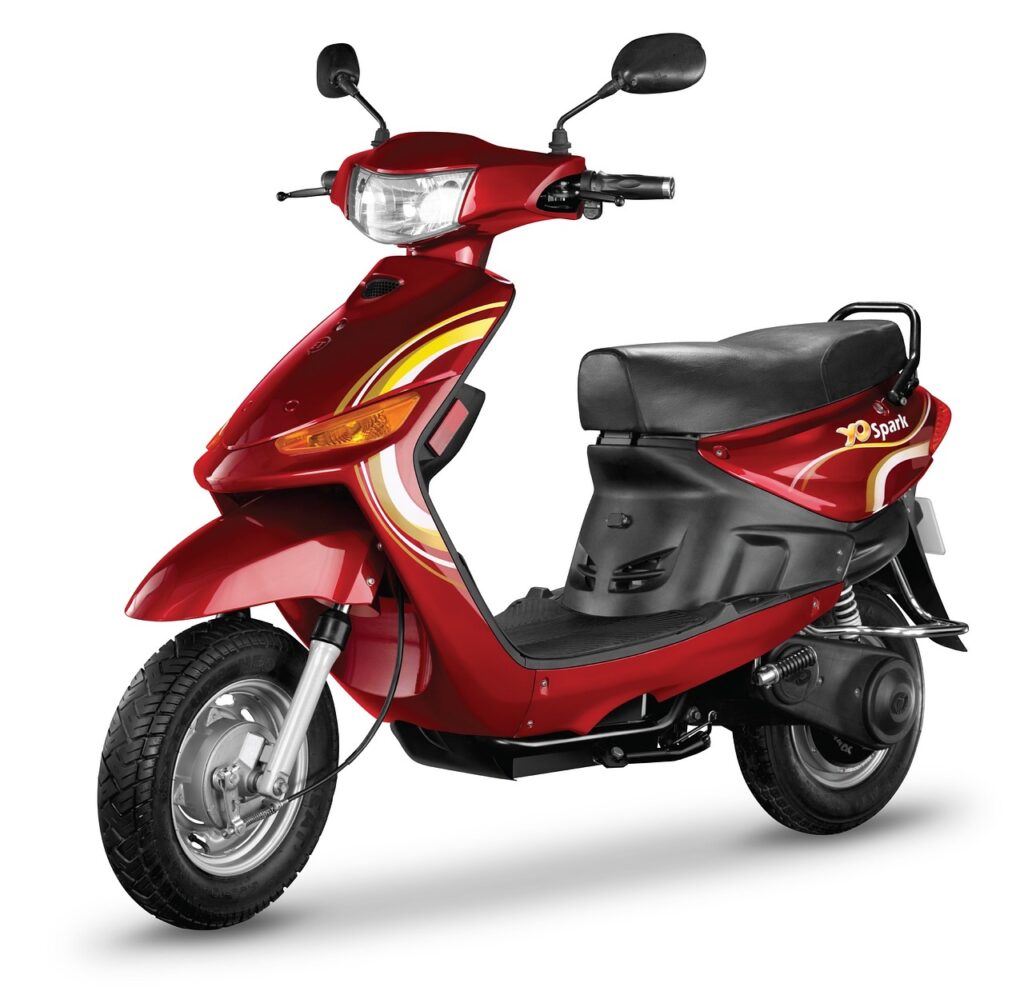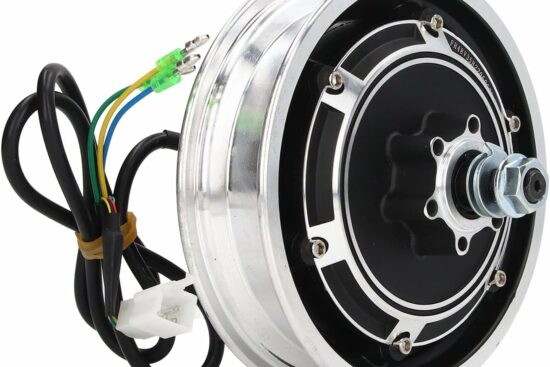
electric bikes have gained immense popularity in recent years, revolutionizing the way we commute and explore our cities. As these eco-friendly and efficient modes of transportation continue to dominate the streets, it is important to analyze the economic implications of this trend. From job creation to reduced fuel expenditures, the rise in electric bike popularity has far-reaching effects on various sectors of the economy. This article will delve into the economic implications of the growing electric bike market, shedding light on the opportunities and challenges that arise as a result.

1. Job Creation
The rise in popularity of electric bikes has significant economic implications, particularly in terms of job creation. As the demand for electric bikes continues to grow, various sectors within the industry will experience an increase in employment opportunities.
1.1 Manufacturing
One of the key areas that will see a surge in job creation is the manufacturing sector. With the rising demand for electric bikes, manufacturers will need to expand their production lines to meet the market’s needs. This expansion will require additional workers, ranging from assembly line workers to quality control experts. The establishment of new manufacturing plants or the expansion of existing ones will create numerous job opportunities for skilled and unskilled workers.
1.2 Sales and Marketing
Another sector that will benefit from the rise in electric bike popularity is sales and marketing. As more consumers choose electric bikes as an environmentally-friendly and cost-effective mode of transportation, the need for skilled salespeople and marketing professionals will increase. These individuals will be responsible for promoting electric bikes, educating consumers about their benefits, and driving sales. The growth in sales and marketing activities will result in job creation within various retail outlets, e-commerce platforms, and marketing agencies.
1.3 Maintenance and Repair
With the surge in electric bike adoption, the demand for maintenance and repair services will also witness a notable increase. Electric bikes necessitate specialized knowledge and skills for maintenance and repair, and as such, more technicians and mechanics will be required to cater to this growing demand. This will not only boost job creation in the maintenance and repair sector but also provide opportunities for individuals to acquire specialized training and skills, leading to better employment prospects.
2. Increase in Demand for Components and Accessories
Alongside the growth in electric bike sales, there will be a subsequent increase in demand for various components and accessories that are integral to the functioning and enhancement of electric bikes.
2.1 Batteries and Charging Stations
One of the primary components essential for electric bikes is batteries. As more individuals opt for electric bikes, there will be an upsurge in demand for batteries. To fulfill this demand, battery manufacturers will need to ramp up production, leading to job creation in battery manufacturing facilities. Additionally, the rise in electric bike popularity will also drive the need for more charging stations. This paves the way for employment opportunities in the installation, maintenance, and operation of these stations.
2.2 Electric Motors and Controllers
Electric motors and controllers are crucial components of electric bikes, and their demand will increase parallelly with the rise in electric bike popularity. Manufacturers specializing in electric motors and controllers will experience a surge in orders, which will lead to the expansion of their production facilities. This expansion will require additional workers, thereby contributing to job creation within the electric motor and controller manufacturing sector.
2.3 Safety Gear and Accessories
With the increasing number of individuals opting for electric bikes, the demand for safety gear and accessories will also witness a significant upswing. Helmets, reflective gear, lights, and other safety accessories will be sought after by electric bike riders. This surge in demand creates opportunities for manufacturers, retailers, and distributors in this sector. The employment prospects within the safety gear and accessories industry will expand in response to the growing market.
3. Growth in Electric Bike Industry
The continuous rise in electric bike popularity will pave the way for notable expansion and growth within the overall electric bike industry.
3.1 Expansion of Manufacturing Plants
To meet the increasing demand, electric bike manufacturers will be prompted to expand their manufacturing plants. These expansions will not only create job opportunities but also increase the overall production capacity of the industry. The growth in manufacturing capabilities will contribute to the economic development of the regions where these plants are established by attracting investment, stimulating ancillary industries, and generating tax revenues.
3.2 Innovation and Technological Advancements
The growing popularity of electric bikes will also stimulate innovation and technological advancements within the industry. Manufacturers will invest in research and development to improve battery efficiency, enhance motor performance, and explore new design concepts. This focus on innovation and technology will result in the creation of high-skilled jobs related to research, design, and development. Moreover, advancements in electric bike technology can also lead to the emergence of new businesses and startups within the industry.
3.3 Market Competition and Market Share
As the electric bike industry expands, competition among manufacturers will intensify. This competition will have positive economic implications, driving manufacturers to improve their product offerings, reduce prices, and enhance customer service. This focus on delivering high-quality, affordable electric bikes will benefit consumers and lead to increased market share for the industry as a whole. Furthermore, the growth of the electric bike market can also attract investments from both domestic and international players, further stimulating economic growth.
4. Reduction in Carbon Emissions
The rise in the popularity of electric bikes can contribute significantly to reducing carbon emissions, resulting in positive environmental and economic outcomes.
4.1 Impact on Environment
Electric bikes are an environmentally-friendly alternative to conventional gasoline-powered vehicles, as they produce zero tailpipe emissions during operation. The widespread adoption of electric bikes can lead to a substantial reduction in air pollution, improving air quality and minimizing the negative health impacts associated with pollution. The positive environmental impact of electric bikes not only benefits public health but also reduces the economic burden placed on healthcare systems to treat pollution-related health issues.
4.2 Contribution to Sustainable Transportation
The increased use of electric bikes promotes sustainable transportation by reducing reliance on fossil fuels and supporting the transition to cleaner energy sources. This shift toward sustainable transportation aligns with global efforts to mitigate climate change and achieve environmental sustainability. The economic benefits of sustainable transportation include decreased fuel consumption, reduced spending on imported fuels, and a decreased dependence on fluctuating oil prices.
4.3 Transition to Clean Energy
The rise in electric bike popularity can also fuel the transition to clean energy sources. As individuals switch from gasoline-powered vehicles to electric bikes, the demand for electricity to charge these bikes will increase. To meet this demand, there will be a need for greater investment in renewable energy generation, such as solar and wind power. This transition to clean energy will diversify the energy mix, reduce dependence on non-renewable resources, and create employment opportunities in the clean energy sector.

5. Influence on Urban Infrastructure
The increasing popularity of electric bikes will have a substantial impact on urban infrastructure, necessitating changes and improvements to accommodate the needs of electric bike riders.
5.1 Development of Bike Lanes and Infrastructure
As more individuals embrace electric bikes, there will be a need for dedicated bike lanes and infrastructure to ensure their safe and efficient movement. The construction and expansion of bike lanes not only provide a safer riding environment for electric bike riders but can also stimulate economic activity. The development of bike lanes requires investment in infrastructure, including road design, signage, and safety measures, which can create job opportunities in the construction and urban planning sectors.
5.2 Integration with Public Transportation Systems
Electric bikes can serve as a valuable complement to existing public transportation systems. By integrating electric bikes into public transportation networks, riders can conveniently travel to and from public transit stations, extending the reach and accessibility of these systems. This integration can result in increased ridership on public transportation, leading to improved revenues for transit agencies. Additionally, the increased convenience and accessibility of public transportation can attract more commuters, reducing traffic congestion and enhancing overall urban mobility.
5.3 Changes in Parking and Traffic Regulations
The growing popularity of electric bikes may necessitate changes in parking and traffic regulations to accommodate this mode of transportation. Governments and local authorities may need to revise parking policies to provide designated parking spaces or bike racks specifically for electric bikes. Traffic regulations may also require amendments to address the unique characteristics and requirements of electric bikes. These changes in regulations can create employment opportunities within government organizations responsible for urban planning, parking management, and traffic control.
6. Effects on Fuel Consumption
The rise in electric bike popularity has significant implications for fuel consumption, particularly the decrease in petroleum-based fuel usage.
6.1 Decrease in Petroleum-based Fuel Usage
As more individuals opt for electric bikes, there will be a decrease in the demand for gasoline and diesel fuel. Electric bikes primarily rely on electricity for their operation, reducing reliance on petroleum-based fuels. The decrease in fuel consumption can have positive economic implications, as it reduces the expenditure on imported fuels and decreases the trade deficit associated with oil imports. This reduction in fuel consumption can also contribute to price stability in the energy markets, benefiting consumers and overall economic stability.
6.2 Impact on Global Oil Demand
The rise in electric bike popularity, coupled with the adoption of electric vehicles in other sectors, can have a discernible impact on global oil demand. As more individuals switch to electric bikes, the demand for petroleum-based fuels for personal transportation decreases. This decrease in demand can affect global oil prices, as reduced consumption puts downward pressure on oil demand and consequently reduces oil prices. The economic implications of lower oil prices include decreased input costs for various industries, increased consumer spending power, and enhanced competitiveness for oil-importing countries.
6.3 Economic Implications for Oil Industry
The increasing popularity of electric bikes can have ripple effects on the oil industry. Reduced demand for petroleum-based fuels can lead to decreased revenues for the oil industry, impacting oil companies, fuel distributors, and associated industries. This shift in consumer behavior can redirect investments and resources away from the conventional oil industry toward cleaner and more sustainable energy sources. However, the decrease in demand for petroleum-based fuels can also create opportunities for oil companies to diversify their operations and invest in renewable energy technologies to adapt to the changing market dynamics.

7. Impact on Local Economies
The rise in electric bike popularity can have a positive impact on local economies, particularly in terms of boosting retail and tourism industries and increasing local business revenue.
7.1 Boost in Retail and Tourism Industries
As the number of electric bikes on the streets increases, local businesses catering to electric bike users will experience a surge in demand. Retailers specializing in electric bikes, safety gear, accessories, and related services will witness increased sales and revenue. Additionally, areas with robust electric bike infrastructure can become attractive destinations for tourists seeking eco-friendly transportation options. This influx of tourists can lead to increased spending on accommodations, food, attractions, and other goods and services, thereby benefiting the local economy.
7.2 Increase in Local Business Revenue
The growth in the electric bike industry can also contribute to increased local business revenue. As more individuals choose electric bikes for commuting, there will be a shift in customer behavior, with individuals frequenting local businesses along their riding routes. This increased foot traffic and consumer spending have the potential to revitalize local economies, supporting small businesses such as cafes, convenience stores, and shops. The boost in local business revenue can lead to job creation, increased tax revenues, and improved economic resilience within communities.
7.3 Opportunities for Bike Rental and Sharing Services
The rise in electric bike popularity creates opportunities for bike rental and sharing services. By providing electric bikes for short-term rentals or shared usage, these services cater to individuals who may not own an electric bike but still want to enjoy its benefits. The establishment and expansion of bike rental and sharing services can stimulate economic activity by creating job opportunities in operations, maintenance, and customer service. Additionally, these services can generate revenue through rentals, contributing to local economies while promoting the adoption of electric bikes.
8. Consumer Spending and Saving Potential
The increased popularity of electric bikes can have a positive effect on consumer spending and potential savings.
8.1 Cost Comparison with Conventional Transportation
Compared to owning and operating a conventional gasoline-powered vehicle, electric bikes offer significant cost savings. Electric bikes have lower upfront costs, require less maintenance, and operate on electricity, which is generally cheaper than gasoline. These cost advantages make electric bikes an attractive option for individuals on tight budgets or those seeking alternatives to expensive car ownership. The potential for cost savings can result in increased disposable income that can be directed toward other essential expenses or discretionary consumer spending.
8.2 Saving on Fuel and Maintenance Expenses
A key economic benefit of electric bikes is the substantial reduction in fuel and maintenance expenses. Electric bikes eliminate the need for gasoline refills, as they rely on electricity for operation. This translates to immediate cost savings for riders, particularly in regions where fuel prices are high. Additionally, electric bikes have fewer moving parts compared to combustion engines, resulting in reduced maintenance and repair costs over time. The reduced expenses associated with fuel and maintenance contribute to financial savings for electric bike owners, enabling them to allocate their resources to other areas of their lives.
8.3 Potential Increase in Disposable Income
The cost savings associated with electric bikes can potentially increase individuals’ disposable income, providing them with more financial flexibility. The decrease in expenses related to fuel, maintenance, and car ownership leaves individuals with additional funds that can be used for other purposes. This increase in disposable income can have a positive impact on local economies, as individuals have more resources available for discretionary spending, such as dining out, entertainment, and shopping. The potential increase in disposable income can stimulate economic activity and further contribute to the growth of local businesses.

9. Job Displacement in Traditional Transportation Sectors
While the rise in electric bike popularity creates job creation opportunities within the electric bike industry, it can also lead to job displacement in traditional transportation sectors.
9.1 Decline in Demand for Gasoline and Diesel Vehicles
As more individuals embrace electric bikes, there will be a decline in the demand for gasoline and diesel vehicles. This shift in consumer preference can result in job displacement within the traditional automotive manufacturing sector. Workers involved in the production, assembly, and maintenance of internal combustion engine vehicles may experience reduced employment opportunities. To mitigate the negative impact, proactive measures such as reskilling and training programs can be implemented to facilitate the transition of workers from traditional transportation sectors to emerging sectors, including electric bikes and electric vehicles.
9.2 Reskilling and Training Opportunities
The rise in electric bike popularity calls for reskilling and training opportunities to equip workers in traditional transportation sectors with the skills required to adapt to the changing industry landscape. As job displacement occurs, offering programs that provide training in electric bike manufacturing, maintenance, repair, and sales can enable workers to transition into the electric bike industry. The provision of reskilling and training opportunities not only minimizes the negative consequences of job displacement but also enhances workforce adaptability and creates a pool of skilled individuals capable of driving industry growth.
9.3 Policy Support for Transitioning Workers
To support workers transitioning from traditional transportation sectors to the electric bike industry, policy measures can be implemented. These policies can include financial support for retraining programs, job placement assistance, and incentives to attract investment in the electric bike industry. By implementing such policy support mechanisms, governments can facilitate the smooth transition of workers, ensure employment stability, and minimize the socioeconomic impacts of job displacement. These measures can contribute to a more sustainable and inclusive economic transition within the transportation sector.
10. Implications for Public Health
The rise in electric bike popularity can have significant implications for public health, leading to improved physical activity levels, reduced air pollution-related health issues, and healthcare cost savings.
10.1 Promotion of Physical Activity and Fitness
Electric bikes offer individuals an alternative mode of transportation that encourages physical activity and fitness. By incorporating pedaling into the riding experience, electric bike riders engage in physical exertion, contributing to increased physical activity levels. The promotion of physical activity and fitness through electric bike usage can have positive health outcomes, such as improved cardiovascular health, weight management, and mental well-being. These health benefits can lead to economic savings in healthcare costs and improved productivity due to reduced absenteeism and improved overall health.
10.2 Reduction in Air Pollution-related Health Issues
The transition from gasoline-powered vehicles to electric bikes contributes to a decrease in air pollution, resulting in improved air quality. This reduction in air pollution can significantly impact public health by mitigating respiratory diseases, allergies, and other health issues caused by exposure to pollutants. The decrease in air pollution-related health issues translates into economic savings in healthcare costs, as the burden placed on healthcare systems to treat these health conditions decreases. Additionally, improved air quality can attract tourists and foster a better quality of life for residents, leading to positive economic and social outcomes.
10.3 Healthcare Cost Savings
The potential healthcare cost savings resulting from the rise in electric bike popularity are significant. A decrease in air pollution-related health issues and the promotion of physical activity through electric bike usage can lead to reduced healthcare expenditures. The prevention and treatment of pollution-related health conditions impose a considerable economic burden on healthcare systems, including costs related to hospitalizations, medication, and long-term treatment. By reducing these healthcare costs, resources can be redirected toward other areas of healthcare provision, leading to improved access, quality, and affordability of healthcare services.
In conclusion, the rise in electric bike popularity brings about a wide range of economic implications. It fuels job creation across various sectors such as manufacturing, sales, marketing, maintenance, and repair. The increased demand for electric bikes and their components stimulates growth within the industry, leading to expansions in manufacturing plants, innovation, and market competition. Moreover, the transition to electric bikes has positive environmental impacts, including the reduction in carbon emissions, promotion of sustainable transportation, and the acceleration of the clean energy transition. The growth of the electric bike industry also influences urban infrastructure, encourages active transportation, and decreases fuel consumption. The economic benefits extend to local economies, leading to retail and tourism industry growth, increased local business revenue, and the emergence of bike rental and sharing services. Additionally, the adoption of electric bikes offers cost savings for consumers, potential increases in disposable income, and job displacement challenges that necessitate reskilling and policy support for transitioning workers. Finally, the rise in electric bike popularity affects public health positively by promoting physical activity, reducing air pollution-related health issues, and generating healthcare cost savings. Overall, the economic implications of the rise in electric bike popularity are extensive and serve as key drivers of sustainable economic growth, job creation, environmental protection, and improved public health.





















